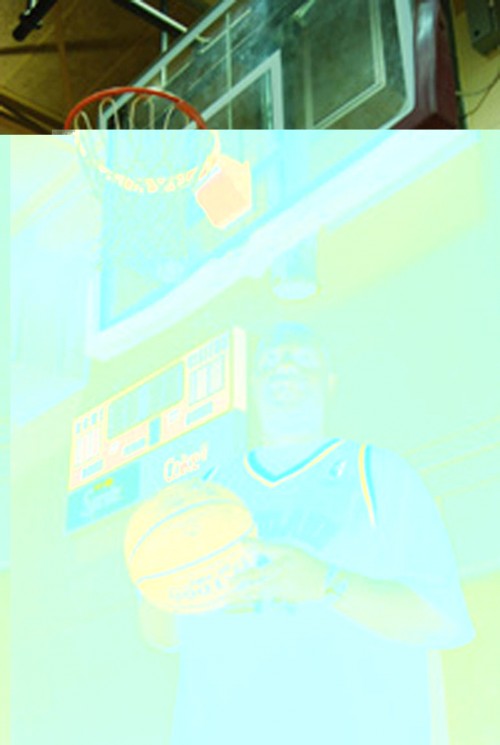
ON THE BALL: McPherson has big plans for Terrebonne hoops
August 1, 2007Dear Editor,
August 3, 2007It is my firm belief, backed up with no small amount of experience and observation, that any party or social setting will be instantly enlivened with soul music. It’s the aural equivalent of comfort food – it nourishes the thing for which it is named.
There are black artists who are still keeping the tradition alive. Howard Tate, Bettye Lavette and Candi Staton are some of the old-school veterans who are still working. Younger stars such as Anthony Hamilton and Van Hunt are faithfully keeping the flame burning, too.
Soul and country are racially-diverse sides of the same coin. But there are a lot more white soul artists than black country stars.
But that’s an observation whose discussion can wait for another time. Suffice it for now to say that there are quite a few white soul singers who do justice to the genre.
Three new releases prove the point.
First, Louisiana native Marc Broussard has a new CD entitled “S.O.S.: Save Our Soul.”
On previous records Broussard wrote most of the material. But here he sings all cover songs except for the final cut.
Broussard is blessed with a magnificent instrument. He can growl, croon, and swoop to falsetto land, like some great black soul men of the past. This album of soul covers, therefore, is a natural direction, albeit one that wouldn’t seem to have long-term potential.
Enjoy it for what it is, though – a collection of knockout performances of some well-known classics (“Love and Happiness,” “Yes We Can Can” and “Respect Yourself”), along with some more obscure songs originally done by Bobby Womack and Blood, Sweat, & Tears. Broussard hits the mark again and again on these songs, and the joy that he takes in the material and in his own performance is palpable.
A couple of drawbacks for me include the use of some overly artificial keyboard work and a sound that’s a tad slick. These are minor complaints about a record that gives much joy.
Joan Osborne may apparently be doomed to one-hit wonder status (“What If God Was One of Us”), but lack of radio airplay is no reason to ignore her. Her latest, “Breakfast in Bed,” is another collection of older songs.
Her previous “How Sweet It Is” combined old rock ‘n’ soul songs, most of which were radically reworked. This time she sticks to soul, but takes out her pen to write about 40 percent of the album.
Osborne is blessed with a gorgeous voice. It’s not that unique or distinctive, but I defy anyone to resist its charms.
It’s ripe and full, with a tart edge that keeps it from preciousness. It not only holds up after repeated listenings, it grows on the enjoyment scale. It is a drug with no ill side effects.
Well-known songs here include “Ain’t No Sunshine,” “Midnight Train to Georgia” and “Sara Smile.” If you’re not won over by the time that last one starts you’re definitely in the wrong place.
Her own songs are sturdy and are snug fits with the covers, although they don’t bring the frissons of pleasure that recognizing the old tunes do. The sound of the record and the arrangements are again in need of a little diversity and roughing up, but the groove that’s here is a mighty one. I’ve got no better praise than to say this CD had been stuck in my player and my Ipod since I got it.
If it’s a male version of bleached soul you crave, look no farther than Jimmy Hall, former lead singer for southern rock and soul band, Wet Willie. He’s had a couple of solo records over the many years since that band’s heyday, but it’s been a long time since he put anything out under his own name.
His new one’s called “Build Your Own Fire,” and it heeds its own directive – it’s smoking.
The CD’s got a very direct link with Osborne’s. Her title track was written by the legendary, but still little-known, Eddie Hinton. Hinton was white, extremely introverted, and smitten with black soul. He hung around, then gradually with, the Muscle Shoals studio where so many classic soul records were produced.
Hinton wrote an enormous amount of songs that are mostly still obscure, but today sound like found nuggets of pure gold. Hall’s CD is made up entirely of Hinton songs.
Hall’s voice is still unmistakable. But it’s taken on a darker and rougher edge over the years, giving him even more range.
He uses it to great effect on the entire record, particularly on the first cut, a duet with Delbert McClinton. His band is top drawer, a mixture of old and younger players. He still blows a righteous harmonica, and the rhythm section is tight and swinging.
Two quibbles: the sound is (no surprise) a little too clean, and the lead guitar player (from the Kentucky Headhunters) overstays his welcome by coming in big and overbearing on most every cut. But if you miss the old Wet Willie at all, get this one now.
These reverse-Oreos deserve your attention and a space on your shelf.





